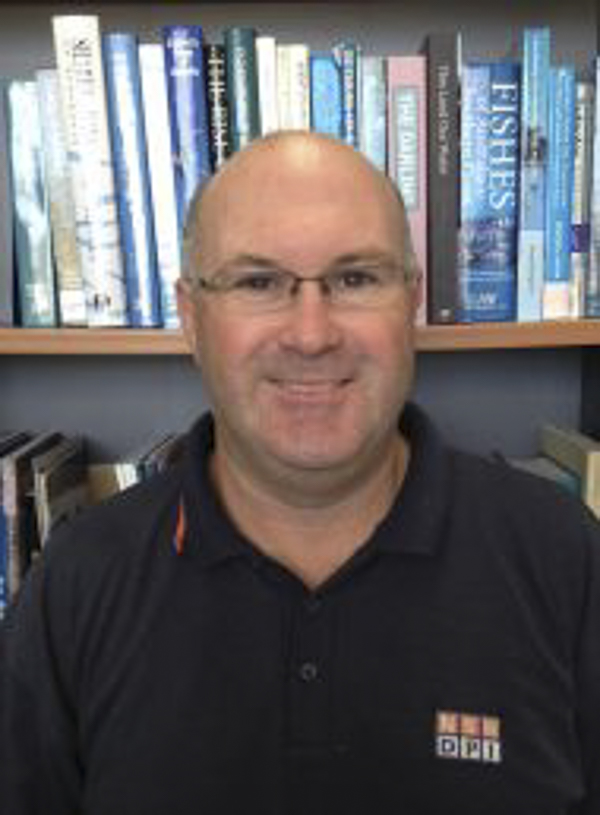 Dr Dean Gilligan
Dr Dean Gilligan
Senior research scientist, NSW Department of Primary Industries
See Dr Gilligan’s full research profile here.
Research outputs linked to policy change and decision-making
- Dr Gilligan led the NSW freshwater fish assemblage condition assessments for the 2009, 2011, 2015 and 2018 NSW State of Environment reports. These reports are the NSW government’s primary mechanism for reporting on status and trends across all aspects of biodiversity. He has been responsible for design and coordination of the NSW government’s state-wide freshwater fish monitoring programs since 2004. Dr Gilligan analysed the data and drafted the freshwater fish relevant sections of the riverine ecosystems, threatened species and alien species modules of the State of Environment reports. These monitoring programs have evolved into the NSW Government’s environmental outcomes monitoring program for the Murray–Darling Basin Plan and will provide decision-support tools relevant to environmental water allocation over the coming years.
- In 2016, Dr Gilligan used NSW Fisheries’ internal data warehouse and external data available through the Atlas of Living Australia and research publications to develop state-wide distribution models for all freshwater fishes and aquatic invertebrates listed as threatened in NSW under the Fisheries Management Act 1994. These distribution models were used to create a series of publicly available maps. The maps are used by the NSW Government and external stakeholders to drive resource allocation, assess development applications and prioritise on-ground management, and have significantly refined the design of riverine health and biodiversity monitoring programs across the state. The outputs have also proved useful in the recent International Union for Conservation of Nature (IUCN) national assessment of every species of Australian freshwater fish, and in the transition to common assessment method-compliant threatened species assessments across all state and federal threatened species specialist committees.
- Dr Gilligan has been the principal investigator of several carp biology, impact and control research projects within the Pest Animal Control Cooperative Research Centre (CRC) and later the Invasive Animals CRC. These projects were associated with both the ”daughterless’ carp gene technology and Cyprinid herpes-virus biocontrol programs being championed by the CRCs. He led the Inland Waters Pests research program for the Invasive Animals CRC. It was this research that resulted in the Australian Government allocating $15 million to establish the national carp control plan (NCCP) in 2016. Dr Gilligan went on the participate as a member of the NCCP’s scientific advisory panel from 2016–2019. The NCCP’s findings were submitted to government in December 2019. If approved, the commencement of a carp biocontrol program in Australia is likely to result in a substantial ecosystem-scale shift in water quality and freshwater biodiversity within the Murray–Darling Basin.
Current academic employment and positions
- current: senior research scientist, Department of Regional NSW – Fisheries
- 2010–2020: NSW Fisheries scientific committee
- 2016–2019: national carp control plan scientific advisory committee.
Highest qualification
- 2001: PhD, Macquarie University.
Roles on government or regional organisation committees
- As a 10-year member of the NSW Fisheries scientific committee, Dr Gilligan has served the government by assessing nominations for threatened species, populations, ecological communities and key threatening process listings, as well as provided review of the NSW Government’s activities under the NSW shark-meshing program.
- Dr Gilligan is a NSW representative on the Australian Society for Fish Biology threatened species committee 2013–2019 and a member of the Australia and New Guinea Fishes Association.
Research quality
- peer-reviewed journal articles: 44
- h-index: 24 (all), 17 since 2015
- i10-index: 40 (all), 30 since 2015.
Training and supervision
- current: 1 PhD student
- completed: 3 PhD and 9 Honours.
 Dr Dean Gilligan
Dr Dean Gilligan